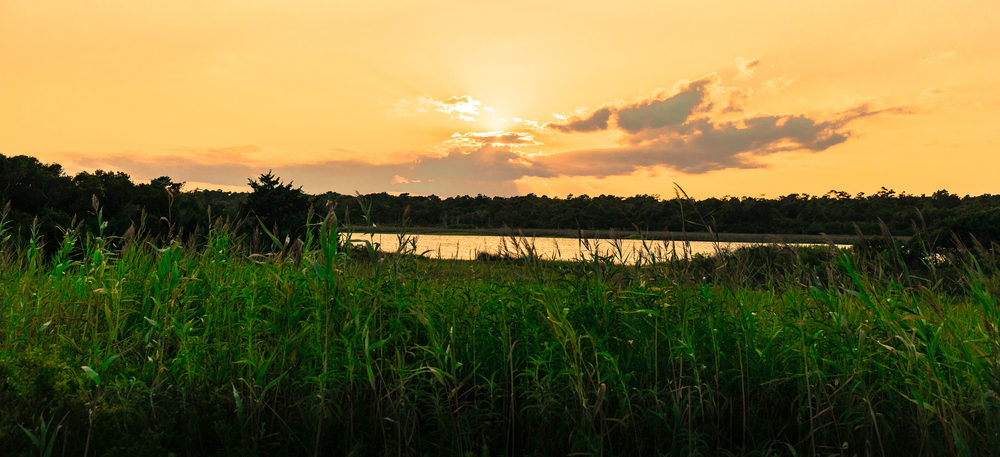
Camp Lejeune is a U.S. Marine Corps base located in Jacksonville, North Carolina. From 1953 to 1987, the camp’s drinking water was contaminated with toxic chemical compounds such as trichloroethylene (TCE), benzene, perchloroethylene (PCE), vinyl chloride, and others.
Estimates place the number of people affected by the water contamination at Camp Lejeune at more than 1 million over the course of more than 30 years. This includes members of the military and civilian employees on the base, as well as their families (including children and babies in utero).
For years, the federal government denied responsibility for the high rate of serious illnesses experienced by people who lived and worked at Camp Lejeune from the 1950s to the 1980s. The effects of the toxic exposure are still felt to this day, with veterans and former residents and employees at Camp Lejeune being diagnosed with cancer, Parkinson’s disease, and other diseases decades after the fact.
The Camp Lejeune Justice Act is poised to pass the U.S. Senate. This legislation will circumvent unacceptable legal loopholes in North Carolina and provide individuals and families affected by the Camp Lejeune water contamination with long-overdue recourse for seeking justice.
Attorneys at the Whitley Law Firm are closely monitoring federal legislation that will enable those impacted by water contamination at Camp Lejeune to pursue compensation. If you previously lived or worked at Camp Lejeune and were later diagnosed with an illness linked to toxic exposure at the base, please call (919) 785-5000 for a free case review.
What Illnesses Are Associated with Camp Lejeune Water Contamination?
The toxic chemicals that contaminated the water at Camp Lejeune have been linked to a number of serious health concerns. Multiple types of cancer are associated with these toxic chemicals, including:
- Kidney cancer
- Non-Hodgkin’s lymphoma (a cancer of the lymphatic system)
- Liver cancer
- Bladder cancer
- Multiple myeloma (cancer of the body’s plasma cells)
- Leukemia (cancer of the blood)
- Brain cancer
- Lung cancer
- Thyroid cancer
- Esophageal cancer
Although cancer is a major concern among those who suffered toxic exposure to contaminated water at Camp Lejeune, it is not the only illness that has been linked to toxic compounds found in the water at the base. Other potential health concerns linked to Camp Lejeune’s decades-long water contamination issues include:
- Parkinson’s disease
- Nephrotoxicity (damage to the kidneys)
- Scleroderma
- Aplastic anemia (a condition where the bone marrow stops producing enough blood cells)
- Myelodysplastic syndromes (MDS) (abnormalities in the body’s blood cell production)
- Hepatic steatosis (fatty liver syndrome)
- Cardiac defects
- Neurobehavioral disorders
Fertility issues and miscarriages have also been linked to the water contamination at Camp Lejeune. In-utero exposure to contaminated water has led to a wide range of birth defects and high rates of childhood cancer. Tragically, many children died very young due to the toxic effects of the chemicals found in the water at Camp Lejeune.
The Challenging Legal History of Camp Lejeune Water Contamination
Historically, legal options for those harmed by the water contamination at Camp Lejeune have been limited. In 2008, the VA established a “presumptive service connection” for veterans stationed at Camp Lejeune between 1953 and 1987. The VA only recognizes a presumptive service connection for eight conditions (Parkinson’s disease; non-Hodgkin’s lymphoma; MDS; adult leukemia; multiple myeloma; and cancers of the bladder, liver, and kidneys). Veterans suffering from other health complaints that may be linked to their service at Camp Lejeune are required to submit additional medical evidence.
In 2012, the Honoring America’s Veterans and Caring for Camp Lejeune Families Act created a mechanism for veterans and their families to receive care through the VA for select health issues associated with Camp Lejeune’s water contamination. Coverage of medical expenses was limited to certain “qualifying health conditions.”
Unfortunately, the VA denied many veterans’ claims for disability and medical services. What’s more, no provision was made for civilian employees and their families exposed to the contaminated water at Camp Lejeune.
To make matters worse, North Carolina law made it impossible for many victims of water contamination at Camp Lejeune to bring civil actions for diseases connected to toxic exposure on the base. North Carolina General Statutes § 1-52(16) states that “no cause of action shall accrue more than 10 years from the last act or omission of the defendant giving rise to the cause of action.”
Known as the statute of repose, the law only gives plaintiffs up to 10 years to bring claims for diseases and other “latent injuries.” Although amended by the state legislature, the statute of repose does not apply retroactively. Considering the toxic exposure at Camp Lejeune began in the 1950s and ended in the 1980s, most claims related to the water contamination have been barred by the courts in North Carolina.
What Are My Legal Rights for Camp Lejeune Water Contamination?
Lawmakers on both sides of the aisle have started to recognize the injustice done to the individuals and families affected by toxic exposure due to water contamination at Camp Lejeune. With the Camp Lejeune Justice Act, they are finally set to take action.
Receiving bipartisan support, the Camp Lejeune Justice Act was passed in the House of Representatives in March 2022. All that remains is for the bill to be passed in the Senate (which it is expected to do) and signed into law.

Once the Camp Lejeune Justice Act is enacted, veterans and others who were exposed to contaminated water at Camp Lejeune will be able to bring claims for personal injury and wrongful death caused by toxic exposure. Claimants must show that they were exposed to contaminated water at Camp Lejeune for a minimum of 30 days between August 1, 1953, and December 31, 1987, and that they and/or a member of their family suffered harm as a result.
The Camp Lejeune Justice Act overrides the North Carolina statute of repose. We expect that the new law will enable Marine Corps veterans, former civilian employees at Camp Lejeune, and the families who resided at the base to finally have an opportunity to pursue the compensation they deserve.
Claims must be brought in the U.S. District Court for the Eastern District of North Carolina. To satisfy the burden of proof, the claimant must produce evidence that is “sufficient to conclude that a causal relationship exists” or “sufficient to conclude that a causal relationship is at least as likely as not” between the Camp Lejeune water contamination and the harm sustained.
Damages for Water Contamination Illnesses Linked to Camp Lejeune
It is important to account for all of the damages you and/or the members of your family have suffered as a result of exposure to contaminated water at Camp Lejeune. You may be entitled to compensation for:
- Medical expenses
- Lost wages
- Loss of earning capacity
- Out-of-pocket expenses
- Pain and suffering
- Emotional distress
- Disability
- Loss of society and companionship
It is important to note that individuals who were previously granted health and disability benefits (i.e., VA benefits) for health conditions related to Camp Lejeune water contamination will have their compensation reduced in proportion to any prior award or payments.
Contact a North Carolina Toxic Exposure Lawyer Today
The Whitley Law Firm embodies a philosophy of wholehearted care. One of our core values is protecting and supporting our community.
We are outraged by the harm done to servicemembers, civilian employees, and their families at Camp Lejeune. The health of multiple generations has been adversely affected by water contamination, and we intend to advocate fiercely for the rights of veterans, civilians, and their loved ones under the rights established by the Camp Lejeune Justice Act.
If you were exposed to contaminated water at Camp Lejeune between the years 1953 to 1987 and you or a member of your family was diagnosed with cancer or another serious medical condition, the Whitley Law Firm can help. Actions under the Camp Lejeune Justice Act must be filed in federal district court, and it is essential to work with experienced attorneys who are well-versed in the complex rules and procedures that will apply to your claim.
Please call the Whitley Law Firm at (919) 785-5000 today or visit us online for a free case review. Our lawyers serve clients throughout North Carolina and nationwide from offices in Raleigh, Kinston, and New Bern.

The Whitley Law Firm is a family affair—in all the ways that matter. Partner Ben Whitley works with his father and brother to create a formidable force when representing clients. After all, helping injured individuals—people who have the deck stacked against them when fighting corporations—is why the Whitleys got into the business in the first place.











Comments for this article are closed.